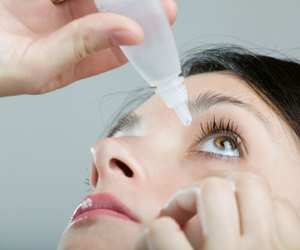Hypromellose: the Versatility of this Polymer
Welcome to our comprehensive guide on Hypromellose, a remarkable polymer with a wide range of applications across various industries. In this article, we’ll delve into the world of Hypromellose, exploring its composition, properties, and the pivotal role it plays in pharmaceuticals, ophthalmics, and beyond. By the end of this guide, you’ll have a clear understanding of Hypromellose’s significance and versatility.
What Is Hypromellose?

hypromellose
Demystifying Hypromellose: A Polymer of Many Facets
Hypromellose, also known as hydroxypropyl methylcellulose (HPMC), stands as a vital polymer with unique properties. In this section, we’ll embark on a journey to understand the intricacies of Hypromellose, its chemical structure, and the common names it goes by. This foundational knowledge forms the basis for comprehending its diverse applications.
Pharmaceutical Uses
Hypromellose’s Role in Enhancing Drug Formulations
Pharmaceuticals have harnessed the potential of Hypromellose extensively. Here, we’ll delve into how this polymer is utilized in tablet coatings and drug formulations. We’ll shed light on how Hypromellose improves drug delivery, dissolution, and bioavailability, with real-world case studies highlighting its significance in the pharmaceutical industry.
Ophthalmic Applications
Hypromellose: Nurturing Eye Health with Precision
Hypromellose’s significance extends to ophthalmic applications, particularly in the realm of eye drops and artificial tears. In this section, we’ll explore how Hypromellose serves as a lubricating agent, providing relief to those experiencing dry eye syndrome and other ocular discomforts. We’ll discuss the importance of maintaining healthy ocular moisture and how Hypromellose contributes to this.
Cosmetic and Personal Care Products
Elevating Beauty and Skin Health with Hypromellose
Hypromellose finds its way into cosmetic and personal care products, enriching formulations designed to enhance skin and hair health. Dive into this section to uncover the benefits it brings to skincare products and cosmetics, as well as its role in haircare items. We’ll provide real-world examples of how Hypromellose elevates the quality of personal care products.
Food and Dietary Supplements
Hypromellose in the Culinary World: A Hidden Ingredient Revealed
Beyond pharmaceuticals and personal care, Hypromellose plays a unique role in the food industry. Here, we’ll explore its use as a food additive, providing natural language explanations of how it improves the texture and quality of various food products. We’ll also discuss safety considerations and the regulatory approvals that govern its use in the culinary world.
Manufacturing and Production
The Birth of Hypromellose: From Cellulose to Polymer
Understanding how Hypromellose is produced from cellulose is crucial to appreciating its quality and applications. In this section, we’ll delve into the manufacturing process of Hypromellose, emphasizing the importance of quality control and sustainable sourcing. We’ll shed light on how responsible production practices contribute to the availability of this versatile polymer.
Hypromellose vs. Other Polymers
Choosing the Right Polymer: Hypromellose in Comparison
While Hypromellose is renowned for its versatility, it’s essential to compare it with similar polymers like methylcellulose and hydroxypropyl methylcellulose. In this section, we’ll provide natural language explanations of when and why Hypromellose might be the preferred choice over alternatives in various applications.
Safety and Precautions
Ensuring Safe Usage of Hypromellose
Safety is paramount when working with any substance. In this section, we’ll discuss potential side effects or allergies related to Hypromellose, providing guidance on its safe usage in different applications. We’ll also present natural language symptoms to watch for and when to seek medical attention if necessary.
Common Questions About Hypromellose
1. What is Hypromellose, and what is it made from?
Answer: Hypromellose, also known as hydroxypropyl methylcellulose (HPMC), is a polymer derived from cellulose, a natural substance found in plant cell walls.
2. Where is Hypromellose commonly used in the pharmaceutical industry?
Answer: Hypromellose is frequently used in pharmaceuticals for tablet coatings, controlled-release formulations, and as a viscosity modifier in oral liquids.
3. How does Hypromellose benefit eye health?
Answer: Hypromellose is used in eye drops and artificial tears to provide lubrication and relief for dry eye syndrome and other ocular conditions.
4. Can Hypromellose be found in skincare and cosmetic products?
Answer: Yes, Hypromellose is used in skincare and cosmetics to improve product texture and stability, making it a common ingredient in creams, lotions, and makeup.
5. Is Hypromellose safe for consumption in food products?
Answer: Hypromellose is considered safe as a food additive and is used to enhance the texture and quality of various food items.
6. Are there any known side effects of Hypromellose in pharmaceuticals or eye drops?
Answer: Hypromellose is generally well-tolerated. However, in rare cases, individuals may experience mild eye irritation or digestive discomfort when used orally.
7. Can Hypromellose be used in dietary supplements?
Answer: Yes, Hypromellose is commonly used as a capsule material in dietary supplements and vitamins.
8. How does Hypromellose compare to other polymers like methylcellulose?
Answer: Hypromellose and methylcellulose are similar, but Hypromellose is often preferred for its consistent performance in pharmaceutical and cosmetic applications.
9. Are there any regulatory guidelines for the use of Hypromellose in products?
Answer: Yes, regulatory agencies, such as the FDA, provide guidelines for the safe use of Hypromellose in pharmaceuticals and food products.
10. Can I consume Hypromellose if I have allergies or sensitivities?
Answer: Hypromellose allergies are extremely rare. However, if you suspect an allergy, consult a healthcare professional for guidance.
Conclusion
In this comprehensive guide, we’ve unveiled the remarkable versatility of Hypromellose, a polymer that touches countless aspects of our lives. From pharmaceutical enhancements to ophthalmic relief, personal care indulgence, and culinary magic, Hypromellose’s impact is profound.




